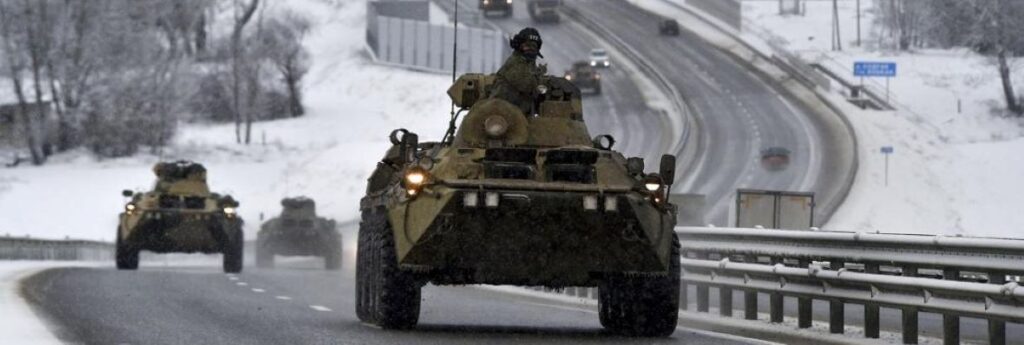With tensions tightening on the Russia-Ukraine border and international fears that an invasion by the former may be imminent, Global Affairs Canada has updated its advisory to the latter, warning Canadians, “If you are in Ukraine, you should evaluate if your presence is essential.”
The new language is addition to a previously existing warning for Canadians to “avoid non-essential travel to Ukraine due to ongoing Russian threats and military buildup in and around the country.”
On its web site, Global Affairs stated: “Since November 2021, there have been increased Russian threats and military buildup near Ukraine’s border with Russia and in illegally occupied Crimea. Security conditions are unpredictable and can deteriorate with little notice, particularly:
• along Ukraine’s borders
• in Crimea
• in the vicinity of Non-Government Controlled Areas in the eastern part of the country
Russian military action in Ukraine could disrupt transportation routes and services throughout the country. It could also severely impact the Embassy’s ability to provide consular services and you should not depend on the Government of Canada to help you leave the country.”
For those who choose to remain in Ukraine, Global Affairs advised Canadians to:
• monitor trustworthy news sources to stay informed on the evolving situation
• make sure travel documents are up-to-date including those of your family
• review your personal security plans
• be prepared to shelter in place if required
• expect transportation routes and services disruptions
• communicate your travel plans to family and friends
• register and update your contact information through the Registration of Canadians Abroad service and encourage other Canadian citizens in Ukraine to do so.
On Tuesday, Canada announced that it is also temporarily withdrawing the families of embassy staff in Kyiv. The move follows similar measures announced by the US and UK.
As fears grew, Ukraine’s leaders on Tuesday sought to offer reassurance that an invasion from neighbouring Russia was not imminent, even as they acknowledged the threat is real and received a shipment of US military equipment to shore up their defenses.
Moscow has denied it is planning an assault, but it has massed an estimated 100,000 troops near Ukraine in recent weeks and is holding military drills at multiple locations in Russia. That has led the United States and its NATO allies to rush to prepare for a possible war.
Several rounds of high stakes diplomacy have failed to yield any breakthroughs, and tensions escalated further this week. NATO said it was bolstering its deterrence in the Baltic Sea region, and the US ordered 8,500 troops on higher alert for potential deployment to Europe as part of an alliance “response force” if necessary.
British Prime Minister Boris Johnson also said he is prepared to send troops to protect NATO allies in Europe.
The US and its allies have vowed to hit Russia with sanctions like never before if Moscow sends its military into Ukraine, but they have provided few details, saying it’s best to keep Putin guessing.
In Ukraine, however, authorities have sought to project calm in order not to destabilize the situation and avoid panic – and many citizens have expressed skepticism that there will be an invasion soon.
In parliament, Defense Minister Oleksii Reznikov said that “as of today, there are no grounds to believe” that Russia is preparing to invade imminently, noting that its troops have not formed what he called a battle group that could force its way through the border.
“Don’t worry, sleep well,” he said. “No need to have your bags packed.”
Nevertheless, Global Affairs Canada says Canadians should still steer clear.

